

0


0

RISING STORIES
By Debolina Coomar
29 June, 2018
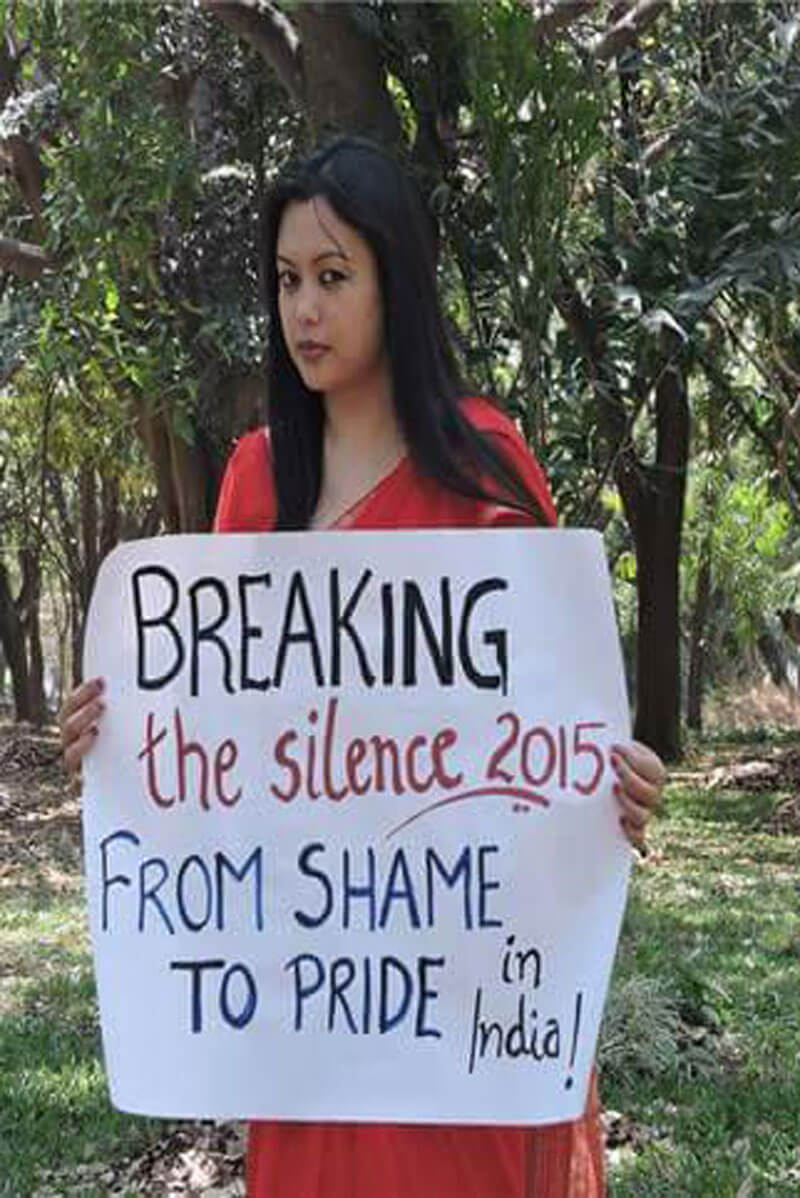
Urmila Chanam and her campaign on menstruation, Breaking The Silence is an eye-opener
In a country where talking about menstruation and its challenges are still considered a taboo, one woman's endless efforts have brought a ray of hope for rural women. There are many under-developed and uneducated factions of our society, to whom menstruation is a 'disease' more than a biological process. They are unaware about the nuances of the process and women are considered to be untouchables during this phase. The inhibition about menstruation is not only restricted to the lower strata of the society. In the so-called educated and civilized society of ours, women still shy away from talking about menstruation, they feel embarrassed discussing about the challenges they face and talk freely about their feelings during this phase. Did you know that in India, 23 million girls drop out of school early when they start menstruating and many of them end up facing acute health problems? The number is surely alarming. Urmila's work in this sector is not only commendable, but it the need of the hour in hugely populous country like ours where half of the population still living in the stigma of discussing about menstruation.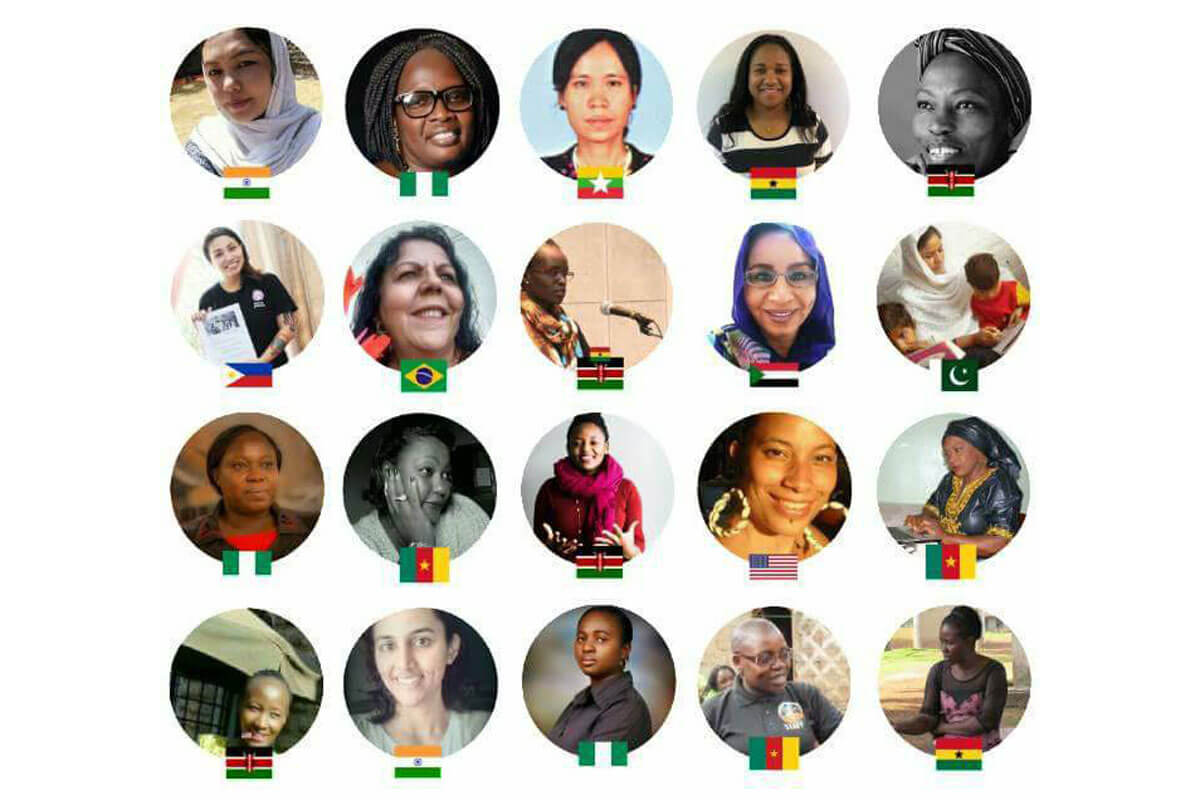 Changemakers from across the world
Urmila Chanam is a journalist and a knowledge management & communications professional. She is a social activist, a gender rights activist, who is known for her highly acclaimed campaign menstruation- Breaking the silence- from Shame to pride. She is also a blogger and a public health professional.
Thanks to Urmila for taking out time from her extremely busy schedule to talk to us about her work, her life and her motivation to move ahead.
Changemakers from across the world
Urmila Chanam is a journalist and a knowledge management & communications professional. She is a social activist, a gender rights activist, who is known for her highly acclaimed campaign menstruation- Breaking the silence- from Shame to pride. She is also a blogger and a public health professional.
Thanks to Urmila for taking out time from her extremely busy schedule to talk to us about her work, her life and her motivation to move ahead.
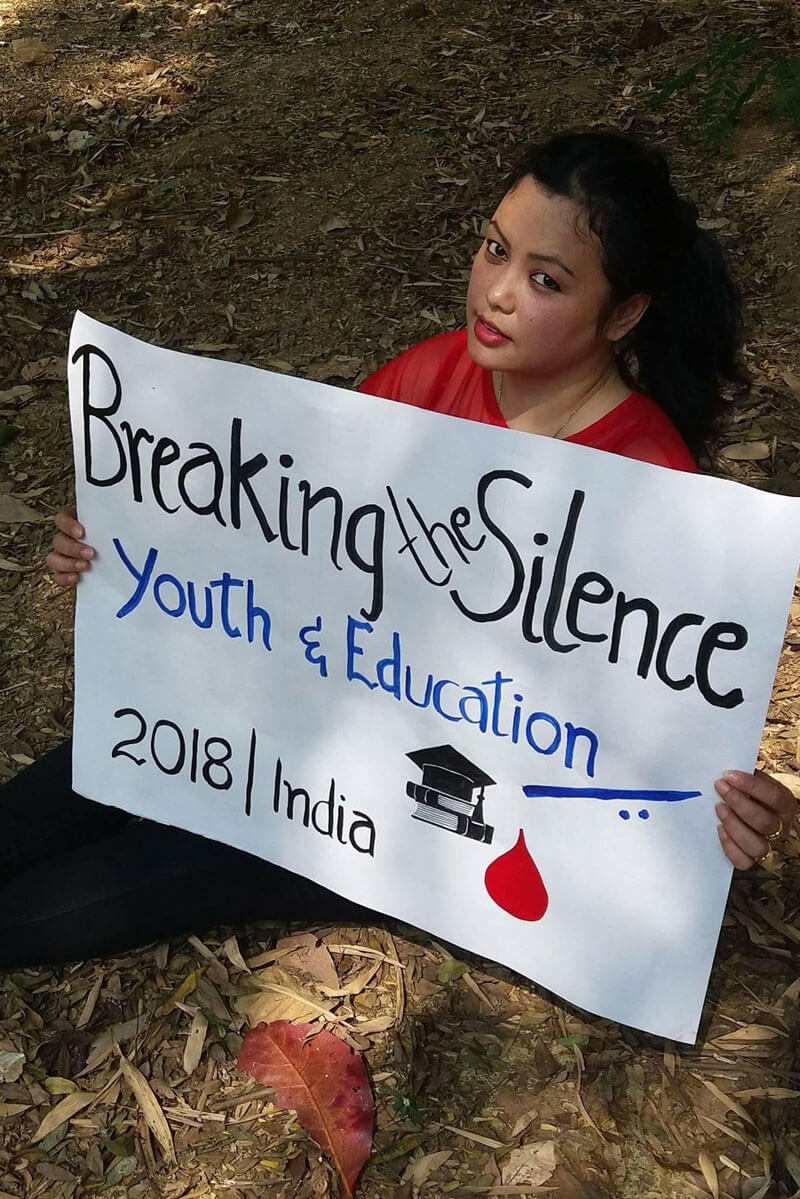 Urmila and her campaign
We started with the question that "how did she start the Breaking The Silence campaign and how women could express themselves in the conservative Indian setup?"
Urmila explained all about it, "I came from the socially developed industry and a highly educated family. My dad was in the army, my mom was educated and my elder siblings were doing their engineering. My education was also based on social things like the community, women and tribal population. Despite all this, I did not know about menstruation till it actually started. And, once it did, I faced a lot of physical challenges in terms of discomfort, skin disease and others. This was probably due to the of education and awareness about the subject and there was no one to talk to. It was a difficult phase for me and it is still like that even after so many years.
That time, there was not one to support and that made me quite a recluse and a bookworm unlike the vibrant and verbose kind I was. In those days, we did not have access to pad, so we used the phanek (traditional Manipuri dress), which is a coarse, polyester cloth. It was also due to the popular belief that wearing a mother's will wade away any evil eye. We had to wash and re-use it. There was one instance when I had not washed the cloth for 3 days and later that stigma kept growing in me.
Years later, as a professional social I was working on different issues like HIV, self-help for women and others. In 2012, one opportunity came when I was selected to travel across India to spread awareness and educate women about menstruation in laboratories. In the spare time, I was expected to do different stories on the topic. Within a period of 60 days I met 12000 women and found that there are so many of them who are still not aware about menstruation and how they are impacted by this natural phenomena.
I was talking about the same thing every day only at changing locations. The constant travel, meeting women across the country and discussing the same thing over and over again brought about a shift in me and this became my mission and vision. As a journalist, I was emotionally completely attached to the subject. This was known as the Nirmal Bharat Yatra, organized by the Indian Government and this became an integral part of my life. When the country was grappled with issues like rape, dowry, female infanticide, honor killing and others, no one bothered about menstruation. It was no big deal not to know about it, even for women. And, I was about to change that. There was a sheer lack of knowledge and awareness about menstrual hygiene and health. Hence, Breaking The Silence was born and till date I have kept it as an individual-driven endeavor because there is a lot regarding apprehension about NGOs in out country. That I was am able to work at a ground level adding a lot of versatility to my work and pursue my endeavor in a more focused manner."
Urmila and her campaign
We started with the question that "how did she start the Breaking The Silence campaign and how women could express themselves in the conservative Indian setup?"
Urmila explained all about it, "I came from the socially developed industry and a highly educated family. My dad was in the army, my mom was educated and my elder siblings were doing their engineering. My education was also based on social things like the community, women and tribal population. Despite all this, I did not know about menstruation till it actually started. And, once it did, I faced a lot of physical challenges in terms of discomfort, skin disease and others. This was probably due to the of education and awareness about the subject and there was no one to talk to. It was a difficult phase for me and it is still like that even after so many years.
That time, there was not one to support and that made me quite a recluse and a bookworm unlike the vibrant and verbose kind I was. In those days, we did not have access to pad, so we used the phanek (traditional Manipuri dress), which is a coarse, polyester cloth. It was also due to the popular belief that wearing a mother's will wade away any evil eye. We had to wash and re-use it. There was one instance when I had not washed the cloth for 3 days and later that stigma kept growing in me.
Years later, as a professional social I was working on different issues like HIV, self-help for women and others. In 2012, one opportunity came when I was selected to travel across India to spread awareness and educate women about menstruation in laboratories. In the spare time, I was expected to do different stories on the topic. Within a period of 60 days I met 12000 women and found that there are so many of them who are still not aware about menstruation and how they are impacted by this natural phenomena.
I was talking about the same thing every day only at changing locations. The constant travel, meeting women across the country and discussing the same thing over and over again brought about a shift in me and this became my mission and vision. As a journalist, I was emotionally completely attached to the subject. This was known as the Nirmal Bharat Yatra, organized by the Indian Government and this became an integral part of my life. When the country was grappled with issues like rape, dowry, female infanticide, honor killing and others, no one bothered about menstruation. It was no big deal not to know about it, even for women. And, I was about to change that. There was a sheer lack of knowledge and awareness about menstrual hygiene and health. Hence, Breaking The Silence was born and till date I have kept it as an individual-driven endeavor because there is a lot regarding apprehension about NGOs in out country. That I was am able to work at a ground level adding a lot of versatility to my work and pursue my endeavor in a more focused manner."
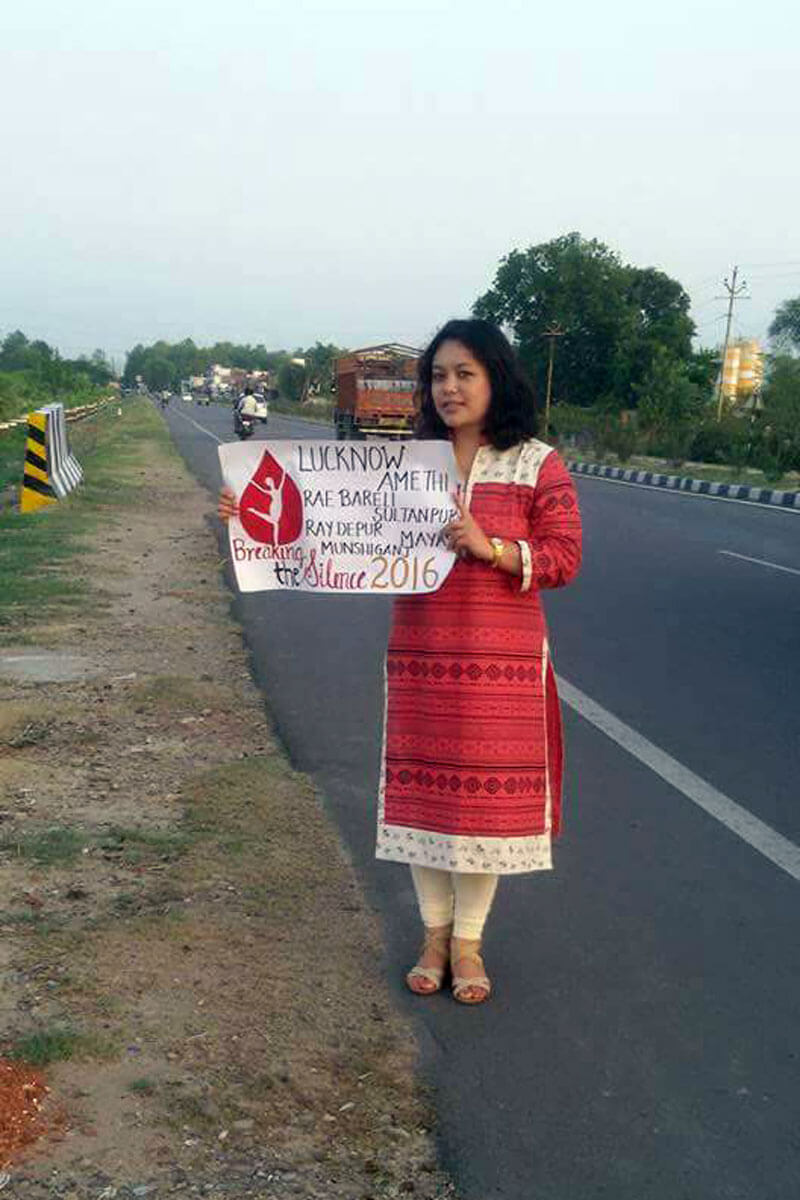 The start of her campaign
It is quite surprising to see that women and girls comprise half of India’s population, yet gender disparities remain a critical issue in India impacting women and girls’ education, health, and workforce participation.
A major part of her work is connecting with the rural mass and educating them about different aspects of menstruation, which apparently seems like a difficult task considering the conservative society we live in. We wanted to know, "how did you connect with the rural women in India and also how the men react to the fact that you were talking to their mothers, daughters and wives among such an issue?"
What she told us is quite a new perspective. "There is a lot of misconception that it will be difficult to connect with women won issues like menstruation. Basically, they are hungry for knowledge, they want to know more. More than a sanitary napkin, women in this country want a space to express themselves, talk about their worries and get help in matters that are very personal. Even talking to the men was not difficult because they wanted a platform to express. When everyone is doing nothing more than moral policing, they needed someone they can trust and speak about their issues. There is no one to talk to about sex, teen pregnancy, subjugation or damages of unprotected sex.
So, I reach them as an individual rather than an NGO because there is a lot of jurisdiction and politics involved, even in social work while functioning as an NGO. I partner with the Government, NGOs or UN agencies to reach regions which are the worst hit in terms of gender disparity and inequality, where people need to know about these issues. I not only do the field work myself, but I can also train and mentor other people to do so. I want to my endeavor to spiral to every corner of the country, where there will be local people propagating the education about menstruation, people who knows the people and the demographics of a particular geography along with the language and gender profile.
I am a certified training who can impart training to NGOs, top Government officials, policy makers, the media and also at the International level in different sectors like menstrual hygiene and health, safety, product landscape, disposal methods and others. It is not such the implementation, but the entire management of the system at different levels of administration."
The start of her campaign
It is quite surprising to see that women and girls comprise half of India’s population, yet gender disparities remain a critical issue in India impacting women and girls’ education, health, and workforce participation.
A major part of her work is connecting with the rural mass and educating them about different aspects of menstruation, which apparently seems like a difficult task considering the conservative society we live in. We wanted to know, "how did you connect with the rural women in India and also how the men react to the fact that you were talking to their mothers, daughters and wives among such an issue?"
What she told us is quite a new perspective. "There is a lot of misconception that it will be difficult to connect with women won issues like menstruation. Basically, they are hungry for knowledge, they want to know more. More than a sanitary napkin, women in this country want a space to express themselves, talk about their worries and get help in matters that are very personal. Even talking to the men was not difficult because they wanted a platform to express. When everyone is doing nothing more than moral policing, they needed someone they can trust and speak about their issues. There is no one to talk to about sex, teen pregnancy, subjugation or damages of unprotected sex.
So, I reach them as an individual rather than an NGO because there is a lot of jurisdiction and politics involved, even in social work while functioning as an NGO. I partner with the Government, NGOs or UN agencies to reach regions which are the worst hit in terms of gender disparity and inequality, where people need to know about these issues. I not only do the field work myself, but I can also train and mentor other people to do so. I want to my endeavor to spiral to every corner of the country, where there will be local people propagating the education about menstruation, people who knows the people and the demographics of a particular geography along with the language and gender profile.
I am a certified training who can impart training to NGOs, top Government officials, policy makers, the media and also at the International level in different sectors like menstrual hygiene and health, safety, product landscape, disposal methods and others. It is not such the implementation, but the entire management of the system at different levels of administration."
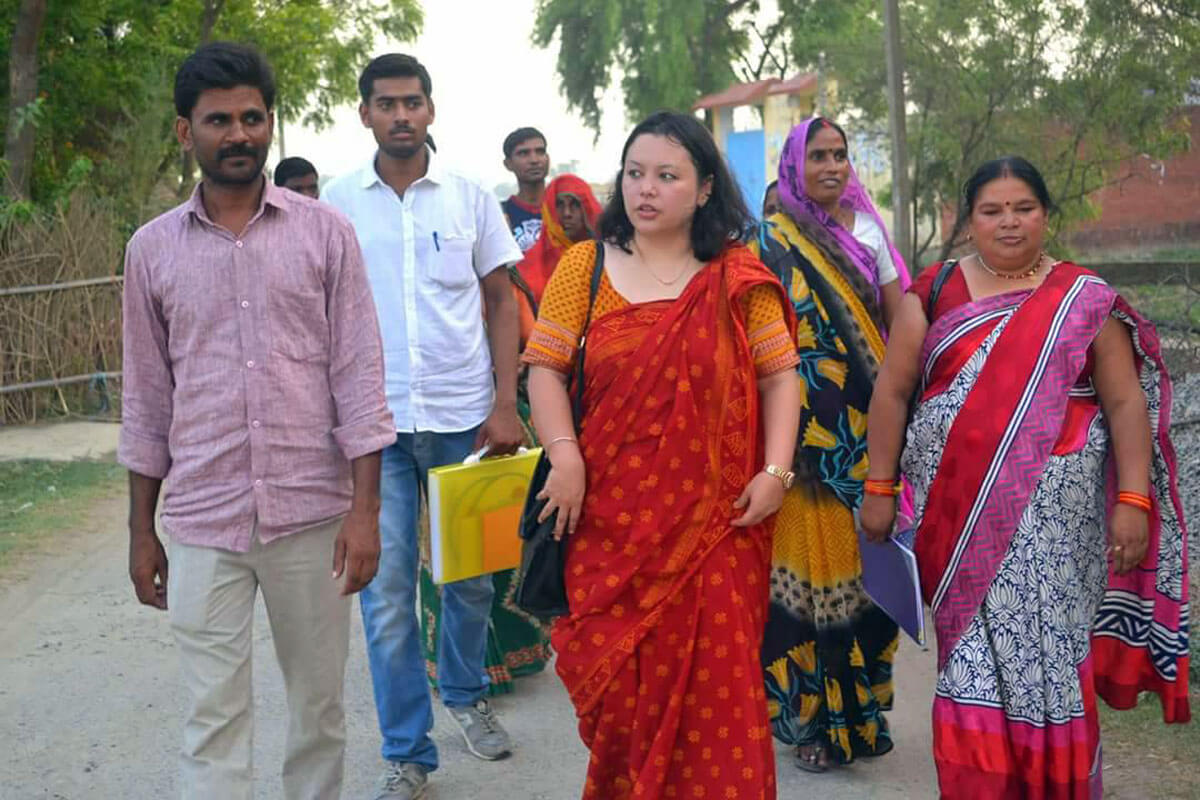 Urmila met 12000 women and girls in 60 days and their families as well
The knowledge and education about menstruation needs to begin at a young age. But, unfortunately that is not the case in India. A study found that in India around 71% of girls have no knowledge of menstruation before their first period. This led us to our next question that "whether the knowledge on menstruation should be imparted at the basic elementary level in schools and to both young boys and girls?"
Urmila not only advocates for menstrual hygiene awareness for women, but it is an equally important concept to know for young boys as well as they face a change in their body during adolescence. She also emphasized on the fact menstrual health and hygiene should be an integral part of our elementary education and this is why. "There is a basic problem with our education system. We introduce concepts like reproduction as late as in Class 9, whereas an average girl starts their first period between 9 to 13 years. And, by the time they learn about reproduction and the human body in Class 9, it is already too late. So, some elementary knowledge about how the body changes in adolescence or what they can expect during menstruation should be imparted by Class 6 itself. many might argue that young children might not understand the concept or misinterpret. But, it is better to make them aware than to keep them in dark. And, it is not only for girls. Even similar education needs to be given to the changes in boys as well. When both the genders see that they undergo a similar change during this phase of their lives, they will start understanding each other better and also empathize with each other. Girls will stop feeling guilty about their bodies and boys will be able to understand them better as well. Form home to society to the national level, equal importance needs to be given to girls and boys as well. Information is the only thing that can set them free. Our education department has a long way to go to revolutionize the curriculum to spread awareness about the right things at the right time."
Urmila met 12000 women and girls in 60 days and their families as well
The knowledge and education about menstruation needs to begin at a young age. But, unfortunately that is not the case in India. A study found that in India around 71% of girls have no knowledge of menstruation before their first period. This led us to our next question that "whether the knowledge on menstruation should be imparted at the basic elementary level in schools and to both young boys and girls?"
Urmila not only advocates for menstrual hygiene awareness for women, but it is an equally important concept to know for young boys as well as they face a change in their body during adolescence. She also emphasized on the fact menstrual health and hygiene should be an integral part of our elementary education and this is why. "There is a basic problem with our education system. We introduce concepts like reproduction as late as in Class 9, whereas an average girl starts their first period between 9 to 13 years. And, by the time they learn about reproduction and the human body in Class 9, it is already too late. So, some elementary knowledge about how the body changes in adolescence or what they can expect during menstruation should be imparted by Class 6 itself. many might argue that young children might not understand the concept or misinterpret. But, it is better to make them aware than to keep them in dark. And, it is not only for girls. Even similar education needs to be given to the changes in boys as well. When both the genders see that they undergo a similar change during this phase of their lives, they will start understanding each other better and also empathize with each other. Girls will stop feeling guilty about their bodies and boys will be able to understand them better as well. Form home to society to the national level, equal importance needs to be given to girls and boys as well. Information is the only thing that can set them free. Our education department has a long way to go to revolutionize the curriculum to spread awareness about the right things at the right time."
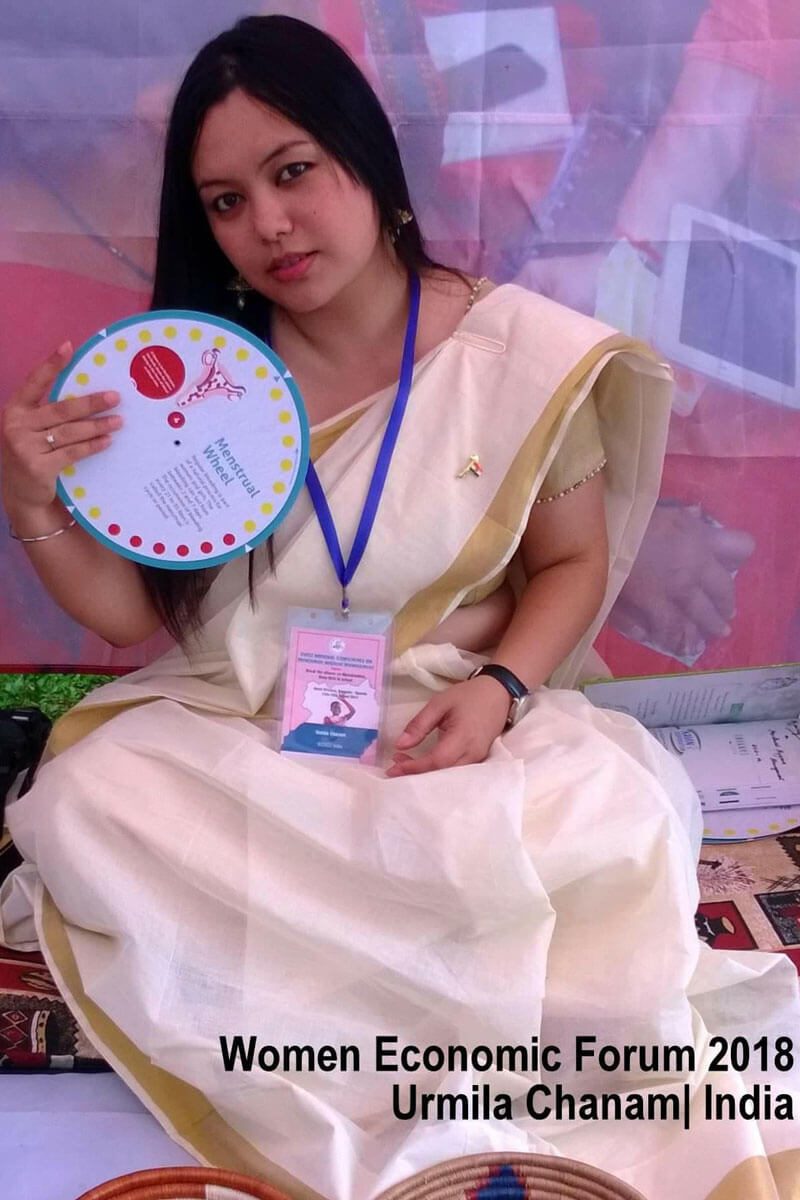 It is quite alarming to know that there are over 355 million menstruating women and girls in India yet millions of women still face significant barriers to comfortable and dignified experience with menstrual health.
You can figure out the the kind of challenge Urmila faces and the tremendous amount time and effort that goes into this endeavor. She has been chosen among the 20 Global Changemakers and she has been instrumental in bringing about a positive change in how menstruation is perceived among the mass in the country today. This brought us towards the end of the interview where we asked her about "balancing her professional and personal lives amidst the tremendous work pressure and travel."
She opened up about her personal life. "By God's grace, my family has been really supportive. I have been in a bad marriage and I am glad that I moved away from all that domestic violence and emotional distress. I was a single mother to my daughter and a bigger responsibility to fulfill. I had to fill the shoes of a father as well. I had to take care of both the financial and emotional aspect and be by her side. My parents and siblings have helped me a lot in this respect. They have taken care of the personal front while I took care of the professional one. I have also involved my daughter in my endeavors. We speak about things we face, what she should expect and also about my work.
As an individual, I am a fun-loving person as well. I love to spend time with my friends and family. Rather than going out, I love to invite them over and hang around at home. I love to cook so I like it when people come over. One more thing I love is shopping. I love to doll up and match my attires and accessories. It is not about expensive brands but rather beautiful things that mix and match. I love to do up my house as well with beautiful things. I love music, both singing and listening to it. So, I try to strike a balance between my hectic travel schedule and my personal life, and my family's support is has been one of my biggest strengths. When you are in a social service sector and you meet meet to discuss things, but your personal life is in a mess, then there is a disparity. I strive never to let that disparity crop in. It is very important to be very close to people, mostly your loved ones.
I also have to spend a lot of time reading and studying. Whenever I go for training, mostly the Government officials, I cannot just talk about menstruation. I need to have an in-depth knowledge about the polices so that I can suggest changes and improvements. I have to refer to the Constitution and section about untouchability and legal rights. Hence, I spend about 5 hours in a day reading and preparing."
It is quite alarming to know that there are over 355 million menstruating women and girls in India yet millions of women still face significant barriers to comfortable and dignified experience with menstrual health.
You can figure out the the kind of challenge Urmila faces and the tremendous amount time and effort that goes into this endeavor. She has been chosen among the 20 Global Changemakers and she has been instrumental in bringing about a positive change in how menstruation is perceived among the mass in the country today. This brought us towards the end of the interview where we asked her about "balancing her professional and personal lives amidst the tremendous work pressure and travel."
She opened up about her personal life. "By God's grace, my family has been really supportive. I have been in a bad marriage and I am glad that I moved away from all that domestic violence and emotional distress. I was a single mother to my daughter and a bigger responsibility to fulfill. I had to fill the shoes of a father as well. I had to take care of both the financial and emotional aspect and be by her side. My parents and siblings have helped me a lot in this respect. They have taken care of the personal front while I took care of the professional one. I have also involved my daughter in my endeavors. We speak about things we face, what she should expect and also about my work.
As an individual, I am a fun-loving person as well. I love to spend time with my friends and family. Rather than going out, I love to invite them over and hang around at home. I love to cook so I like it when people come over. One more thing I love is shopping. I love to doll up and match my attires and accessories. It is not about expensive brands but rather beautiful things that mix and match. I love to do up my house as well with beautiful things. I love music, both singing and listening to it. So, I try to strike a balance between my hectic travel schedule and my personal life, and my family's support is has been one of my biggest strengths. When you are in a social service sector and you meet meet to discuss things, but your personal life is in a mess, then there is a disparity. I strive never to let that disparity crop in. It is very important to be very close to people, mostly your loved ones.
I also have to spend a lot of time reading and studying. Whenever I go for training, mostly the Government officials, I cannot just talk about menstruation. I need to have an in-depth knowledge about the polices so that I can suggest changes and improvements. I have to refer to the Constitution and section about untouchability and legal rights. Hence, I spend about 5 hours in a day reading and preparing."
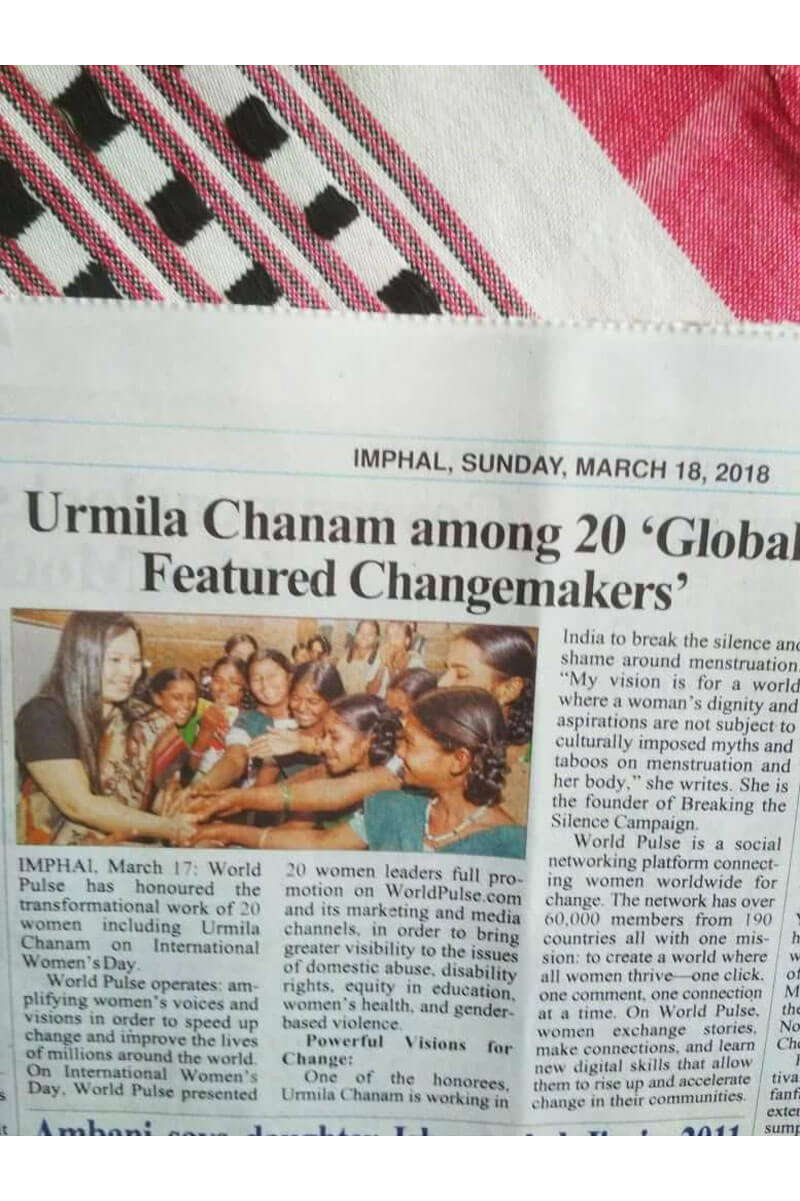 Urmila among the 20 Global Featured Changemakers
When asked about "her future plans and campaigns", Urmila added that her dreams are very big. "It is not about a single campaign rather about the society and Nation at large. I want to see a world where the body and the biological processes like menstruation doesn't stop a woman from living her life or from acquiring her aspirations.There is one section of our society who are still considered as 'untouchables' and they are the menstruating women and girls. I want to see a complete abolition of this. Every moment I dream to reach that goal. My current focus is to train people who can carry the work forward because one person is not enough to span the entire population and even a section of it. So, we need more people who are passionate about the cause and would like to change women's lives in India and abroad.
In 2018-2019, I want to partner with more women leaders from across the world, travel to their country and mobilize women. I also want to headhunt for good trainers who can make a difference for women in the society."
Finally, we asked her to leave a message or a piece of advice for our readers. She ended with a positive note and something that we all should read and know about. "My message to the global audience including my country is that a woman doesn't need to about a sanitary pad. They need much more that. Many of us assume that an Indian women are incapable to acquire the information, especially after the release of Padman, but that is not the case. What we need is equality and that is something that should start from our homes. Why the taboo about women and menstruation? It is the minuscule value we put to the life of a girl child? Will it be the same if men started menstruating? Probably, not. It would have been celebrating, and things and schedules would be planned according to them. Will there is a lack of sanitary materials? So, why the different treatment for women and the girl in our home? These issue are not related to sanitary pads or menstruation, rather it is about the girl and woman who are menstruating.We need to take a closer look at the bigger picture and take action."
Urmila among the 20 Global Featured Changemakers
When asked about "her future plans and campaigns", Urmila added that her dreams are very big. "It is not about a single campaign rather about the society and Nation at large. I want to see a world where the body and the biological processes like menstruation doesn't stop a woman from living her life or from acquiring her aspirations.There is one section of our society who are still considered as 'untouchables' and they are the menstruating women and girls. I want to see a complete abolition of this. Every moment I dream to reach that goal. My current focus is to train people who can carry the work forward because one person is not enough to span the entire population and even a section of it. So, we need more people who are passionate about the cause and would like to change women's lives in India and abroad.
In 2018-2019, I want to partner with more women leaders from across the world, travel to their country and mobilize women. I also want to headhunt for good trainers who can make a difference for women in the society."
Finally, we asked her to leave a message or a piece of advice for our readers. She ended with a positive note and something that we all should read and know about. "My message to the global audience including my country is that a woman doesn't need to about a sanitary pad. They need much more that. Many of us assume that an Indian women are incapable to acquire the information, especially after the release of Padman, but that is not the case. What we need is equality and that is something that should start from our homes. Why the taboo about women and menstruation? It is the minuscule value we put to the life of a girl child? Will it be the same if men started menstruating? Probably, not. It would have been celebrating, and things and schedules would be planned according to them. Will there is a lack of sanitary materials? So, why the different treatment for women and the girl in our home? These issue are not related to sanitary pads or menstruation, rather it is about the girl and woman who are menstruating.We need to take a closer look at the bigger picture and take action."
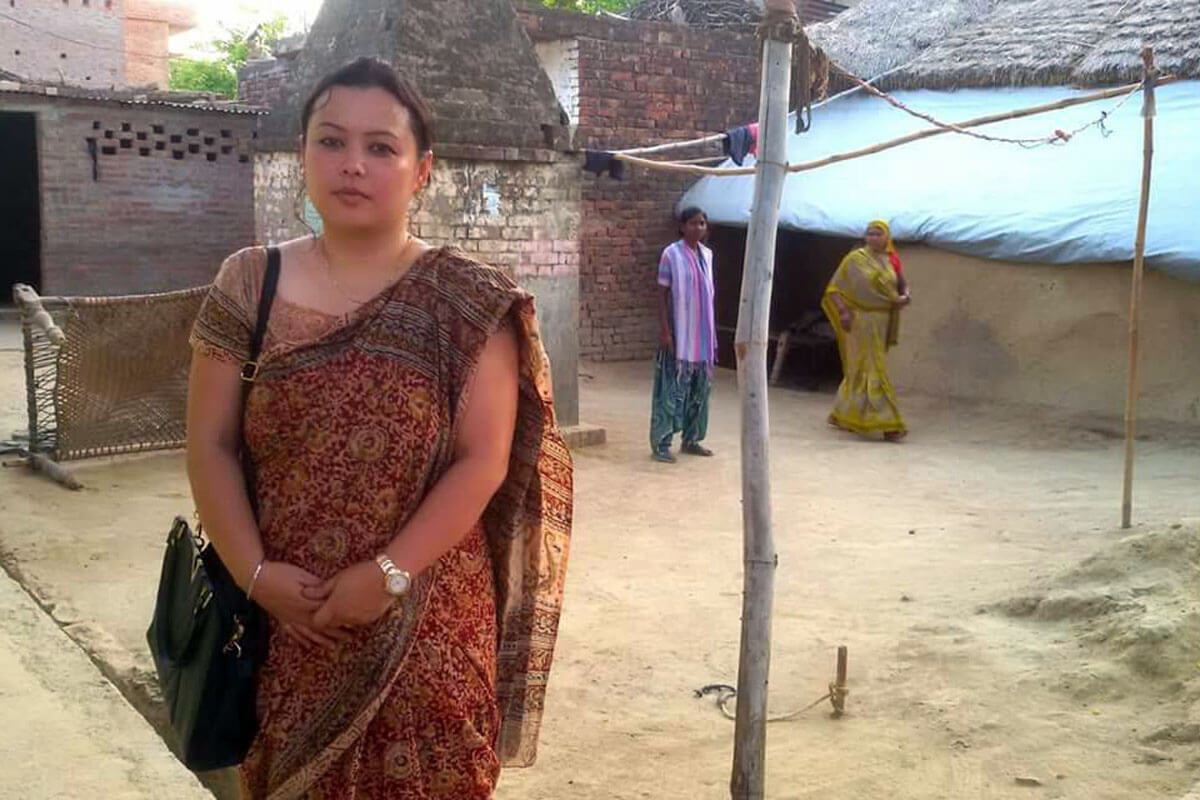 Urmila Chanam, the Wow-man behind Breaking The Silence
It is an overwhelming experience to talk to someone who is channelizing for her efforts for an endeavor which will change how men and women perceive menstruation, something that will bring about a positive change in the nation and lead us to better informed society at large.
We appreciate and applaud her endeavor about spreading awareness about menstruation among the mass and encouraging women to opt for better menstruation hygiene and health.
For more interviews and unique interesting contents, Like our Facebook page, Follow us on Twitter, and Subscribe to our magazine.
Urmila Chanam, the Wow-man behind Breaking The Silence
It is an overwhelming experience to talk to someone who is channelizing for her efforts for an endeavor which will change how men and women perceive menstruation, something that will bring about a positive change in the nation and lead us to better informed society at large.
We appreciate and applaud her endeavor about spreading awareness about menstruation among the mass and encouraging women to opt for better menstruation hygiene and health.
For more interviews and unique interesting contents, Like our Facebook page, Follow us on Twitter, and Subscribe to our magazine.